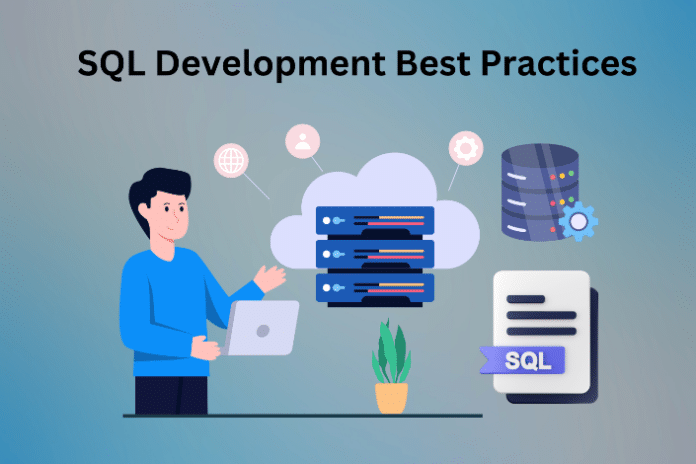Aspiring SQL (Structured Query Language) developers must become SQL experts to use databases efficiently and make data-driven decisions. While SQL Courses are an excellent step towards becoming an expert SQL developer, familiarising yourself with industry best practices is crucial. This blog discusses the best SQL development practices that any developer should know, and these best practices will assist an SQL Developer in maximising the potential of their databases and providing expert solutions, including optimising query performance and ensuring data integrity and security.
Table of Contents
Best Practices of SQL Development
Understand the Database Schema
SQL developers must have a solid understanding of the database schema before delving into SQL development. Investigate and understand the database’s tables, columns, relationships, and constraints. Having this knowledge will help you create SQL queries that are both efficient and accurate, allowing you to retrieve the desired data without any errors.
Use Consistent Naming Conventions
Using consistent naming conventions for database objects like tables, columns, indexes, and stored procedures is a good idea to make SQL code easier to read and maintain. Name each database object in a way that conveys its purpose and content. Be descriptive and meaningful. Maintaining a standard naming scheme streamlines communication with other developers and helps keep problems from being misunderstood.
Write Clear and Concise SQL Queries
Craft SQL Queries That Are Easy to Understand and Read: Craft SQL queries that are easy to read and understand. For better readability, use the correct indentation, formatting, and comments. Use aliases to clarify your questions and break down complicated ones into smaller, more manageable steps. Don’t use extraneous features or shortcuts to clarify the query’s meaning.
Optimise Query Performance
For effective database operations, it is crucial to optimise query performance. Indexing should be used wisely to speed up data retrieval and reduce unnecessary table scans. Examine the plans for running queries and find ways to make them more efficient by changing or adding indexes, rewriting queries, or rearranging the database’s schema. Database performance should be monitored regularly, and any inefficiencies or bottlenecks should be addressed promptly.
Document SQL Code and Processes
To make SQL development projects more collaborative, knowledge-sharing, and code maintenance-friendly, documentation of SQL code and processes is essential. Write down the SQL code, including the queries, stored procedures, and database schema definitions, so that other developers can understand it and make changes if needed. Data migration procedures, performance optimisations, and decisions made during database design should also be documented for transparency and traceability. New team members can be onboarded more quickly, problems can be effectively troubleshooted, and consistency can be promoted across SQL development projects with comprehensive documentation.
Practice Proper Error Handling
To handle exceptions and errors gracefully, it is essential to implement robust error-handling mechanisms in SQL code. To effectively capture and handle errors, use try-catch blocks or error-handling functions. Offer helpful error messages to assist with SQL code troubleshooting and debugging. Database applications are more reliable and robust when errors are correctly handled.
Ensure Data Security and Integrity
Ensure that referential integrity constraints like foreign and primary key constraints are enforced to avoid inconsistent or orphaned data. Security measures like authentication, authorisation, and encryption should be implemented to prevent unauthorised individuals from accessing or tampering with sensitive data. Ensure everyone follows all the rules and regulations regarding database access and permissions by auditing them regularly.
Regularly Backup and Maintain the Database
Regular database backups are essential to preventing data loss due to malicious attacks, software errors, or hardware failures. Set up automated retention policies and backup schedules for dependable and timely backups. Index defragmentation, statistics updates, and database consistency checks are routine maintenance tasks that should be performed to optimise performance and reliability.
Stay Updated with SQL Technologies
To be a better SQL developer, you should keep up with the latest news and best practices in SQL technology. To further your education and get insight from professionals in the field, consider enrolling in SQL courses, attending workshops, or joining online communities. Stay up-to-date and improve your skills as an SQL developer by experimenting with new features and functionalities introduced in SQL databases.
Conclusion
Being an expert SQL developer calls for more than technical expertise; it also necessitates the following standards that guarantee safe, dependable, and efficient database operations: Developers specialising in SQL can better fulfill their clients’ ever-changing demands if they adhere to several best practices, including familiarity with the database schema, consistent naming conventions, clear and concise SQL query writing, optimisation of query performance, correct error handling, regular database backup and maintenance, and staying updated with SQL technologies.


